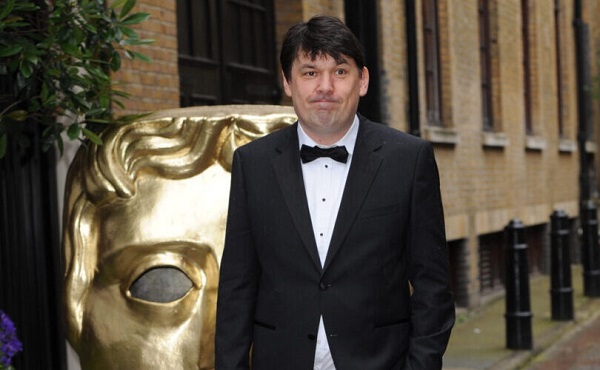International
EU elections turn ‘sharp right’ as immigration woes wreak havoc in Europe
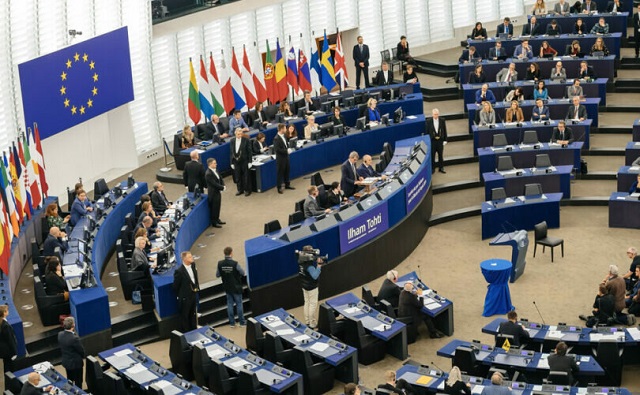
Plenary chamber of the European Parliament, Strasbourg, FranceHadrian/Shutterstock
From LifeSiteNews
By Frank Wright
The recent European Union elections have resulted in significant gains for right wing and nationalist parties across major European countries in a signal move against widespread liberal immigration policies.
As predicted by the European Council on Foreign Relations in January, the EU elections have delivered a “sharp right turn” in the major nations of the European Union.
France saw the biggest gains for population friendly politics, with the right-wing National Rally party (RN) securing up to 33 percent of the vote: more than twice that of President Emmanuel Macron’s party. The map below shows in blue where nationalists won:

This 2022 map below shows the sharpness of the right turn in France in only two years:

Macron has announced a parliamentary election in France, to be held within 30 days.
In addition to the 30 seats won by the RN, led in the EU by Jordan Bardella, the Reconquest party of Marion Marechal took another five seats, leaving nationalists in France with 35 against 13 for the governing coalition. Marechal is the niece of the RN’s National Assembly leader Marine Le Pen.
A full summary of the results at the time of writing is available at Politico.
In Germany, Europe’s most solid anti-globalist party the Alternative for Germany (AfD) came second to the “conservative” Christian Democratic Union of Germany, its 15 seats and 16 percent of the vote putting it ahead of all the parties of the “traffic light” coalition of reds, greens, and yellow liberals. The ruling parties have long threatened to criminalize the AfD, as it continues to rise in the polls.
In Austria, the nationalist Freedom Party of Austria came first with over 25 percent and six seats, beating the “conservative” Austrian People’s Party into second place.
Geert Wilder’s PVV took the most seats in the Netherlands, winning six – with the anti-globalist Farmer Citizen Movement (BBB) winning a further two.
Hard right and nationalist parties came joint first in Belgium, with the Vlaams Belang returning from destruction by liberal lawfare of its immensely successful predecessor, the Vlaams Blok, to secure three seats.
Hungary’s staunchly pro-family and pro-nation ruling party Fidesz took almost 45 percent, its 10 seats edging out the second placed “conservative” Respect and Freedom Party on seven.
No change at the top of the EU
Yet the encouraging results for the reality-based community are tempered by two facts: the “conservative” faction of Ursula von der Leyen remains the largest, and the real power will still be divided among the ruling liberal establishment.
Von der Leyen is seeking a second term in office, and will likely work with red, green, and liberal globalists to get one.
In an early indication of the response to popular politics by the globalist elite, she has recently announced an enormous EU-wide censorship and propaganda effort. Known as the European Democracy Shield, its purpose is to shield the ruling elite she leads from democracy.
Europe must be able to defend itself – against all kinds of attacks.
I will propose a European Democracy Shield.
🛡️To detect disinformation and malign interference
🛡️To remove content, including AI deepfakes
🛡️To make our societies more resilient pic.twitter.com/d455YyWUib
— Ursula von der Leyen (@vonderleyen_epp) May 20, 2024
Real power in the EU, as in all “democracies,” is not in the Parliament – but lies with the permanent government at the top.
The real power is not in Parliament
The EU Parliament, whose new makeup now includes 157 seats for a divided right-nationalist faction, does not set EU policies.
The positions which decide EU policy are those on the European Commission and European Council. These, as before, will be allotted to members of the liberal consensus: the EPP group – led by the current EU Chief Commissioner Von der Leyen – remains the largest group with 186 seats and is “conservative” in name only. With 720 seats in total, 361 seats are required for a majority.
The EPP is expected to continue to collaborate with the reds, greens, and liberals to achieve this.
The liberal left has 135 seats – eleven fewer than the nationalists – but being a single group achieves second place as a result.
Added to this, the 79 seats of the liberals grants the globalist uniparty a majority in the EU Parliament.
Why are the nationalists divided?
The nationalist bloc – Identity and Democracy (ID) – is led by the largest party, the French RN. It suspended the AfD in May, as the French group sought to distance itself from continued attempts to discredit the AfD in the German press.
As a result, the AfD’s 15 seats join the 10 of Hungary’s ruling Fidesz in the non-aligned group. These 25 non-aligned seats for the politics of sanity are buttressed by the nationalist ID group of 58 seats, and the national-conservative ECR group with 73. A nominal total of 157 right-nationalists emerges, when the single seat from the Niki party of Greece is included.
General elections
Calls were made for a general election in France and in Germany following the decisive defeat of the ruling parties in the two major nations of Europe.
The French National Assembly has been dissolved by Macron, with a parliamentary election to follow within 30 days. With no presidential election scheduled until 2027 it is likely that Macron will remain the head of state over a Parliament firmly opposed to his personal platform which has delivered war, mass migration, and mounting left wing street violence.
In an early sign of rising political violence, left wing rioters marauded through Paris, smashing windows and burning cars in Bordeaux, Toulouse, and other French cities following the results of the EU elections in France.
In Germany, the leader of the right-liberal Christian Democratic Union called for elections after his “conservative” party topped the polls, with the AfD in second place. The current Chancellor Olaf Scholz ruled out snap elections, promising instead to crack down on the AfD and propagandize his people into becoming more “modern” and “progressive.”
This was the prescription written for the ruling parties of the elite in the Council on Foreign Relations’ January warning, which said globalist power must be secured by information control:
Progressive policymakers need to start considering the trends that are driving these voting patterns and begin preparing narratives that can cut through them.
With this report in detail from Ireland, narrative control is compounded with another “conspiracy theory” in action: the replacement of the electorate by mass migration driven by war.
Irish elections ‘rigged’? Globalist replacement in action
Ireland has seen the most widespread popular revolt against what Irish natives call the “plantation” of huge volumes of male migrants into their nation.
Yet this popular upsurge was not reflected in local and EU elections, whose results are yet to be fully declared. The talk in Ireland is of migrants bussed to polling stations, and a media blackout on non-mainstream candidates for an Irish Ireland.
Dublin doctor Jane Holland, had this to say: “Imagine a government operated so poorly they had to import an entire nation of new voters because they lost the citizens’ vote.”
Holland sensibly suggested that “Voting should be reserved for citizens only.” Is she representative of a far-right conspiracy theory known as the “Great Replacement”?
Since 2004, non-Irish residents have been permitted to vote in elections in Ireland. An NGO campaigning for increased migrant rights to Irish homes and benefits has been “bussing” migrant voters to polling stations, ensuring they “vote correctly.”
We took thousands of Refugees in Direct Provision Camps to Polling Station this morning to ensure they voted correctly.
The Government should give all of them right to remain in Ireland.#RefugeesWelcome pic.twitter.com/64NpLjrBs8
— Abolish Direct Provision Campaign (@AbolishDirect) June 7, 2024
Both the newspaper which reported this fact above, and the NGO bussing migrants to vote for migrants in elections – are funded by the European Union to do so.
The efforts of this NGO ensured “90 percent of asylum seekers turned out to vote.”
We are really proud of the 90% turnout of asylum seekers to vote. It would be the first time that there is a centre in every county of Ireland.
Fact. Last elections in 2019 there were 62 DP Centres and this year over 350 centres & Aramark Tents
They will vote correctly 🗣️ pic.twitter.com/dX2t4kCup0
— Abolish Direct Provision Campaign (@AbolishDirect) June 7, 2024
They celebrated many victories, including the first Nigerian woman to hold office in Galway.
Congratulations to Helen Ogbu and to Ireland ❤️🇮🇪
'From asylum seeker to councillor' – Helen Ogbu becomes first black woman elected to Galway City Council @jqbilbao https://t.co/RVkC7FkFJN via @NewstalkFM— Razan Ibraheem (رزان) (@RazanIRL) June 9, 2024
Former Irish republican party Sinn Fein, now globalist, has been caught “farming votes from Ukrainians” in Ireland, with the promise of housing and accelerated citizenship in return.
Media ‘lockout’ of non-establishment candidates
Irish people simply do not hear of any alternative, according to critics, thanks to media censorship by omission.
“This is very clear after these elections. The national media worked in a deeply unethical manner to shield the general public from conservative perspectives in particular.”
So said independent journalist Eoin Lenihan, explaining, “There was a blanket lockout of non-leftist and non-establishment parties and independents.”
Lenihan’s statement on X (formerly Twitter) referenced another Irish user’s claim that “Irish journalists working for national media are toxic and a threat to democracy in Ireland. There was a blanket lockout of non-leftist and non-establishment parties and Independents.”
Despite regime efforts to suppress native Irish politics, four nationalists were elected to council positions in Dublin. Pro-life Patrick Quinlan won for the National Party, and Catholic Gavin Pepper is one “working class ordinary Irishman” who managed to break through the “lockout” to win a local council seat in Dublin.
“We’re up against the media” he said in his victory speech, “who don’t let us have a fair say.”
Attempted murder of Catholic nationalist
Another breakthrough came with the victory of pro-life Catholic Malachy Steenson, also in Dublin. Steenson, described as the “Plantation resistance leader,” recently addressed a crowd of 15,000 in a mass demonstration against the “plantation” of migrants into Ireland by its globalist government.
Councillor elect Malachy Steenson addresses a crowd of 15,000 people in Dublin recently. pic.twitter.com/lthQbenGb6
— MichaeloKeeffe (@Mick_O_Keeffe) June 10, 2024
The Irish nationalist was attacked in his office last month by an “antifascist thug” who had arrived to kill him. Having announced his intention to assassinate Steenson to Irish police, he was followed to Steenson’s office, where he was arrested whilst attempting to carry out his threat.
MEP candidate Malachy Steenson give an update after a far left lunatic showed up to his office and wanted to kill him. #IrelandBelongsToTheIrish pic.twitter.com/Ve0VV0HOrh
— Toby 🇮🇪 (@ThoughtsToby) May 15, 2024
Steenson is a strong critic of Israel’s actions in Gaza, and on his election denounced the Irish state broadcaster RTE as a “government propaganda organization.”
Steenson’s message was simple, stating that with his victory, “The revolution has begun.”
National protest leader Malachy Steenson speaks to RTE after his election in Dublin –
"The revolution has begun". pic.twitter.com/dIKTL2RHzv
— MichaeloKeeffe (@Mick_O_Keeffe) June 9, 2024
The view from Russia
With the mainstream media a component in the consolidation of globalist elite power, the perspective from a so-called enemy nation is perhaps the most sincere appraisal of the European situation.
When asked about the election results – and why EU policies will not change despite them – Chargé d’Affaires of the Russian Mission to the EU Kirill Logvinov said this on June 10 in an interview with Russian news outlet RIA:
The main reason is that protest sentiments have been ignored for a long time. The attempted violation of rights and freedoms during the pandemic, the failed migration policy, rising inflation, the deteriorating socio-economic situation, the urge to equate pro-European and pro-Ukrainian interests – the public grievances piled up and sooner or later had to find a ‘way out.’
And they found it in the European elections.
It is startling to see how the Russians view Europe: a managed democracy which is radicalizing its own populations against itself. Continuing, Logvinov stated:
In a number of countries, voters have virtually passed a vote of no confidence in the parties in power. Contrary to the rules of political life, however, ‘flawed’ national governments are not obliged to learn lessons immediately, which could lead to further radicalization of society.
The Russian diplomat concluded that the EU system will simply neutralize the will of its people:
Despite the voters’ simple demand for attention to their vital interests, the centrist majority will do its utmost to ‘dilute’ views and approaches that go against the political mainstream.
This is all the easier when MEPs are essentially unaccountable to their own electorate.
With a locked down media and the plantation of an imported voting bloc, Ireland is one nation to watch to see how long the politics of elite repression can continue under the European Union.
Censorship Industrial Complex
UK’s top cop wants to ‘stop policing tweets’: report

From LifeSiteNews
By Frank Wright
‘I don’t believe we should be policing toxic culture wars debates,’ said Sir Mark Rowley, chief of the London Metropolitan Police.
In a remarkable shift, Britain’s most senior police officer is to recommend changes to the law which could allow police to “stop policing tweets” within weeks.
Sir Mark Rowley, chief of London’s Metropolitan Police, said he will approach the Home Secretary with proposals which could see police return to policing real-life crime.
Sources close to Rowley told the UK’s Daily Telegraph:
He wants Shabana Mahmood, the new Home Secretary, to change the rules so police officers are not required to record or investigate complaints when there is no evidence the suspect intended real-world harm.
The change would be a remarkable departure from the crackdown on “non-crime hate incidents,” which have seen British people given sentences of several years for remarks made online.
Rowley’s move to change the law comes alongside the UK Labour government’s proposal to introduce digital ID – which could tie access to bank accounts and work to online speech.
Return to common sense policing?
The Telegraph’s source said Rowley “is proposing a shake-up of legislation that would give officers greater discretion to use ‘common sense’ when deciding whether to record and investigate complaints about comments on social media.”
The proposed change follows the arrest of comedy writer Graham Linehan, prompting the Metropolitan Police Chief to respond.
Responding to Linehan’s arrest, Rowley said on September 3 that a return to common sense was needed as a series of high-profile arrests over “non-crime hate incidents” was undermining public trust in the police.
He said the policies of successive governments had left the police in an “impossible position” over hate speech laws.
“I don’t believe we should be policing toxic culture wars debates,” Rowley added in a September 9 report, before claiming the police were not responsible for their actions.
“[O]fficers are currently in an impossible position. I have offered to provide suggestions to the Home Office on where the law and policy should be clarified.”
Telegraph journalist Allison Pearson, who was doorstepped by police last November for a tweet described as a “non-crime hate incident,” responded on September 9 by saying Rowley’s step towards defending free speech was “disingenuous” at best.
“At the risk of being arrested,” Pearson said, “I suggest Met chief Mark Rowley is a total muppet.”
Commenting on the recent arrest of comedian Graham Linehan for online speech, she added, “It is disingenuous in the extreme for the commissioner to say officers’ hands are tied in cases like that of Graham Linehan.”
Pearson explains that Linehan, famous for writing sitcoms, was arrested by five armed police after a “notorious trans activist” reported his tweets to police.
Rowley’s claim is that guidelines to police compel them to treat such appeals as crime reports, leaving no room for discretion.
Pearson then refers to the many real-life crimes to which British police do not routinely respond – even over decades:
It’s perfectly clear that the police have discretion to ignore complaints, even crimes, if they want to. Let’s see now:
Phone theft – ignored.
Shoplifting – essentially legal.
Carjacking – we’ll send you a crime number.
Burglaries – help yourself, lads!
Sexual harassment, child gang rape – er, sorry, cultural sensitivities.
Pearson concludes that the police chief is himself being dishonest – at best – in saying that speech crime laws tie the hands of officers.
For Sir Mark to claim that his officers were unable to use their common sense and ignore a complaint from a notorious trans activist about [Linehan] is to insult the public’s intelligence.
Baronness Winterbourne of the House of Lords responded, recommending that “[i]nstead of blaming Parliament for your officers’ inability to think for themselves intelligently, perhaps you might firmly tell them, please, to stop being stupid.”
En désespoir pic.twitter.com/Dm7XViTZ8s
— Emma Harriet Nicholson (@Baroness_Nichol) September 5, 2025
As the latest Telegraph report shows, government advice to police already exists – which has not prevented the policing of so-called “non-crime hate incidents.”
More than 13,200 non-crime hate incidents were recorded by police in the 12 months to June 2024, a similar number to the previous year, despite new guidelines requiring police to investigate only ‘when it is absolutely necessary and proportionate and not simply because someone is offended.’
Rowley was also recorded on a UK radio show defending the officers who carried out Linehan’s arrest.
Graham Linehan’s case is but one of many in which British people have been prosecuted for online speech. As the Free Speech Union reported in April 2025, new data showed that over 12,000 people in Britain are arrested for speech crimes every year.
Hitchens: Disband the police?
Peter Hitchens, a veteran conservative commentator and staunch Christian, spoke out on GB News – calling for the British police to be completely abolished and replaced.
Peter Hitchens calls for the police to be disbanded and rebuilt from scratch, accusing them of becoming 'a sinister menace to freedom of speech'.
'They’re not responsible for crime anymore. They’re a politically correct body who think they’re policing thought.' pic.twitter.com/EylPbMyviP
— GB News (@GBNEWS) September 10, 2025
Hitchens, a devout Christian, said the British police should be “disbanded” as they have become a “sinister menace to the freedom of speech.”
“They’re not responsible for crime anymore,” Hitchens explained. “They’re a politically correct body who think they’re policing thought.”
He told GB News’ Michelle Dewberry that “the police don’t believe they should be doing what we think they should be doing. They do believe they should be arresting people for incorrect tweets. The only solution is to disband them and start again.”
Elsewhere Hitchens argued this was no novel development, saying this “new style of policing” went back 20 years.
Two-tier Keir Starmer
The embattled Prime Minister Keir Starmer has long been accused of “two-tier” policing in cracking down on “far-right thugs” who commit online speech crimes.
As the murder of Charlie Kirk focuses attention on the toxic speech of the left, Britain’s justice system sees no evil when left-wingers call for the collective murder of people on the right.
Whilst former Conservative councilor Lucy Connolly received a 31-month sentence for an angry tweet about illegal migrants, a councilor for Starmer’s own Labour Party was found not guilty of incitement to violence after demanding that everyone he saw as “far right” be murdered.
Ricky Jones was declared innocent after publicly calling for his comrades to “cut the throats” of the so-called “disgusting Nazi fascists” who were protesting over the murder of children by a man of migrant heritage. Three girls were killed in Southport by a Rwandan youth last July. After stabbing the nine children in a frenzied assault, Axel Rudakubana told police, “It’s a good thing those children are dead.”
When angry protests broke out at the murders, Jones responded on video, saying of the so-called “far-right” protesters: “We need to cut all their throats and get rid of them all.”
Jones was freed, Connolly was jailed.
Talking of calls for violence,
Violent extremist RICKY JONES was released on bail until his trial in January despite the severity of his crime.
Protesters have been jailed for very minor crimes yet their vile ex Labour Party councillor gets totally different treatment.
This… https://t.co/XW4Oo2lB4R pic.twitter.com/7C2PtZL9kW
— Antifa Public Watch official (@UnmaskedAntifa) October 23, 2024
Despite the obvious dangers in preferring the policing of speech to genuine threats and crimes, there seems to be no cause for concern from the point of view of Britain’s prime minister.
During Wednesday afternoon’s questions, Sir Keir Starmer was asked whether he would commit to revising speech laws to “ensure legitimate free expression is protected.”
Starmer replied with a stock response: “I’ve been clear throughout, we must ensure the police focus on the most serious issues and the issues that matter most to our constituencies and all communities.”
He ended by saying he was proud of Britain’s long history of free speech, which he said he would always protect.
“And that includes tackling issues like antisocial behavior, knife crime and violence. And we have a long history of free speech in this country. I’m very proud of that, and I will always defend it.”
Crime
FBI offering $100,000 reward for information leading to arrest of Charlie Kirk Assassin

From The Center Square
By
The Utah Department of Public Safety has released photos depicting the person of interest connected to the fatal shooting of conservative activist Charlie Kirk.
Although law enforcement uncovered the rifle used to kill Kirk during a Wednesday event at Utah Valley University, a manhunt for the shooter remains ongoing. Authorities had initially detained two individuals at different times following the shooting but released them after determining neither was involved.
Authorities in Utah are looking for this man in relation to Wednesday’s assassination of conservative activist Charlie Kirk.
State of Utah with permission
The two blurry images, circulated by Utah DPS Thursday, depict what appears to be a white male wearing sunglasses, a hat, and dark clothing. Authorities have not officially confirmed the person of interest’s race, sex, or age.

Utah DPS is encouraging anyone with information on the person to call 1-800-CALL-FBI or submit digital media tips to https://tips.fbi.gov/digitalmedia/f4507712a3b2893.
The FBI is also offering up to $100,000 for “information leading to the identification and arrest of the individual(s) responsible for the murder of Charlie Kirk.”
Authorities in Utah are looking for this man in relation to the Wednesday assassination of Charlie Kirk.

State of Utah with permission
The 31-year-old Turning Point USA founder and ally of President Donald Trump took a bullet to the neck while speaking at his “American Comeback Tour” on UVU’s campus. He was pronounced dead shortly thereafter, leaving behind his wife and two children under the age of five.
School authorities traced the shots to the roof of the Losee Center, about 200 yards from the outdoor event.
Kirk’s death sent shockwaves across the political sphere, with lawmakers on both sides of the aisle condemning the shooting Wednesday afternoon. Calling Kirk “a truly Great American Patriot,” Trump ordered all American flags to be lowered to half-mast until Sunday evening.
-

 Business2 days ago
Business2 days agoCanada Post is broken beyond repair
-
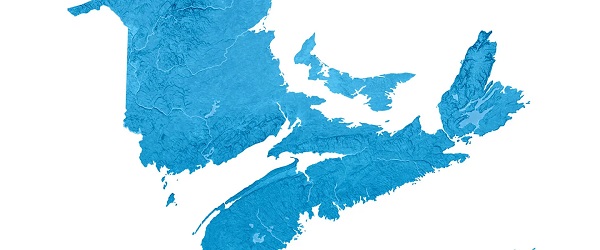
 Alberta2 days ago
Alberta2 days agoMaritime provinces can enact policies to reduce reliance on Alberta… ehem.. Ottawa
-

 Business2 days ago
Business2 days agoCanada can’t allow so many people to say ‘no’ to energy projects
-
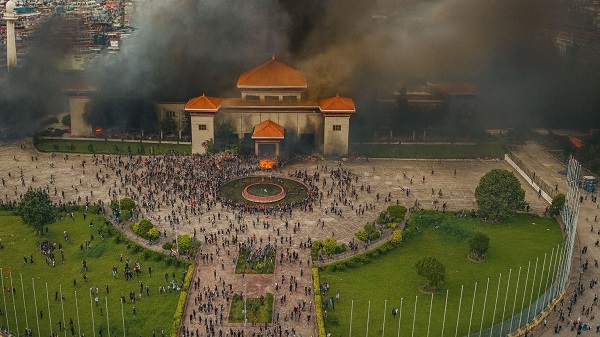
 International2 days ago
International2 days agoNepal Tried To Censor The Internet. Young People Set Parliament on Fire.
-
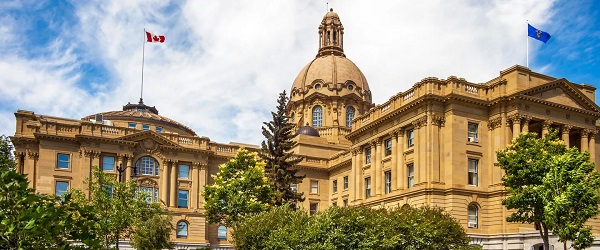
 Alberta2 days ago
Alberta2 days agoYes Alberta has a spending problem. But it has solutions too
-
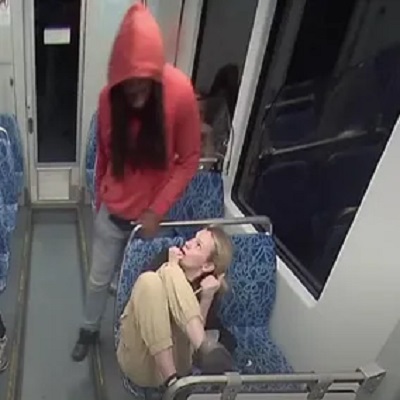
 Crime2 days ago
Crime2 days agoCharlotte train killer hit with federal murder charge, faces max penalty
-
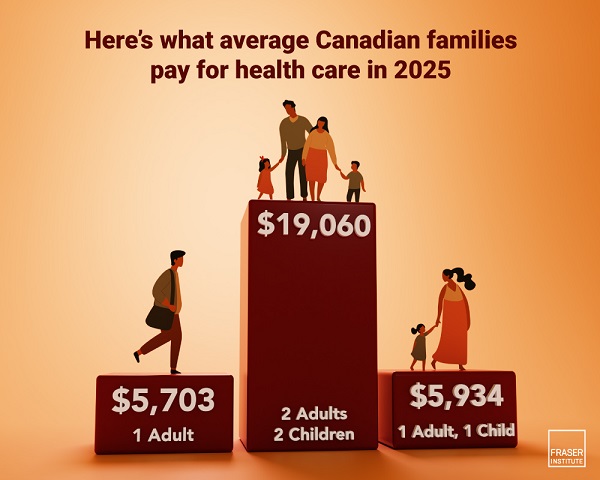
 Business1 day ago
Business1 day agoHealth-care costs for typical Canadian family will reach over $19,000 this year
-
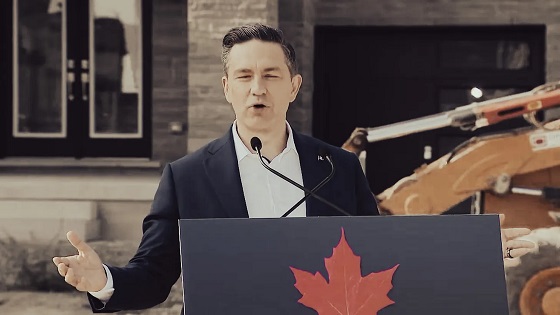
 Business1 day ago
Business1 day agoPoilievre: “Carney More Irresponsible Than Trudeau” as Housing, Jobs, and Energy Failures Mount





